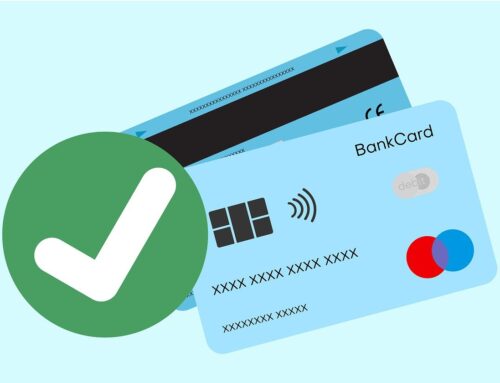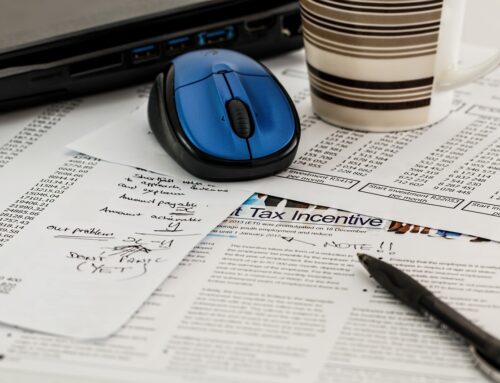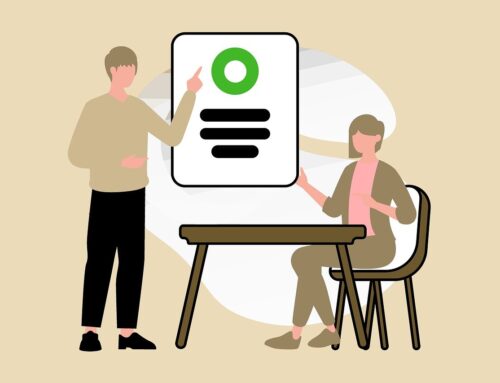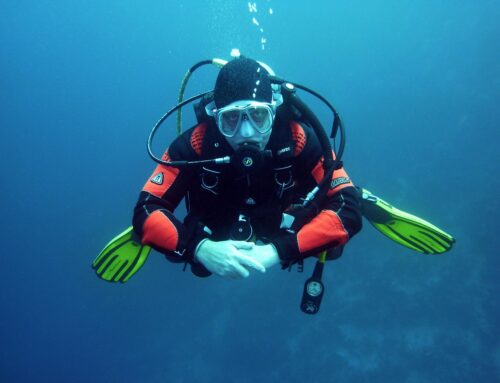
Self-Defense Considerations and laws in the Philippines for Expats
Living in the Philippines can be an amazing experience, offering beautiful scenery, friendly people, and a rich culture. However, just like anywhere else in the world, it’s important to be aware of your surroundings and understand how to protect yourself in case of an emergency. This is especially true for expats who may not be familiar with the local laws and customs.
This guide will explore the key aspects of Philippines self-defense laws for expats. We’ll break down the legalities of self-defense, provide tips for staying safe, and outline the steps to take if you find yourself in a dangerous situation.
Whether you’ve been living in the Philippines for a while or are just planning your move, understanding self-defense laws can give you peace of mind and help you navigate any unexpected situations.
Understanding Self-Defense as a Justifying Circumstance: Your Rights as an Expat
The good news is that the Philippines recognizes self-defense as a justifying circumstance. This means that if you’re ever forced to defend yourself, you may not be held criminally liable for your actions – as long as certain conditions are met.
Here’s what this means for expats living in the Philippines:
- Equal Protection Under the Law: The law applies equally to everyone, regardless of nationality. So, if you find yourself in a situation where you need to defend yourself, you have the same rights as Filipino citizens under self-defense laws.
- Knowing Your Limits: It’s important to understand the specific criteria for a successful self-defense claim. We’ll delve deeper into these criteria in the next section.
Remember: While self-defense laws offer protection, it’s always best to avoid dangerous situations altogether. However, if faced with a threat, understanding your rights can be crucial.
The Three Pillars of Self-Defense: The Legal Framework for Expats
Understanding self-defense in the Philippines boils down to three key principles: these are your three pillars of self-defense. As an expat, grasping these legal concepts can empower you to act appropriately if faced with a threat. Let’s break them down:
Unlawful Aggression: The Threat Must Be Real and Immediate
The first pillar, unlawful aggression, means there must be a clear and present danger to your life, safety, or property. This could be a physical attack, a robbery attempt, or even a credible threat of violence.
Key Points for Expats:
- Don’t use force in response to verbal threats or minor altercations.
- You can only act in self-defense if there’s a genuine and immediate threat.
Reasonable Necessity: Your Response Must Be Proportional
The second pillar, reasonable necessity, focuses on the proportionality of your response. You can use force to defend yourself, but the level of force used must be reasonable in relation to the threat you’re facing.
Key Points for Expats:
- If someone shoves you, responding with a weapon wouldn’t be considered reasonable.
- The goal is to stop the threat, not inflict unnecessary harm.
Lack of Provocation: Don’t Initiate the Conflict
The final pillar, lack of provocation, means you cannot have intentionally provoked the attacker. If you instigate a fight, self-defense won’t be a valid defense.
Key Points for Expats:
- Avoid confrontations and walk away from tense situations if possible.
- De-escalation is always the preferred approach.
De-Escalation: The First Line of Defense for Expats
Before we delve into the legalities of self-defense, it’s crucial to understand that de-escalation is always the first line of defense. In most situations, avoiding conflict altogether is the safest course of action. Here’s why de-escalation is so important for expats in the Philippines:
Staying Safe and Avoiding Trouble
The Philippines is generally a safe country, but as with any place, there are situations where trouble can arise. By prioritizing de-escalation, you can significantly reduce your chances of getting into a dangerous situation.
Cultural Awareness and Sensitivity
As an expat, being mindful of local customs and avoiding confrontations can go a long way. De-escalation shows respect for the culture and can help prevent misunderstandings that might lead to conflict.
De-Escalation Strategies: Keeping a Cool Head
Here are some practical tips for de-escalating a tense situation:
- Maintain a calm demeanor: Avoid yelling or using aggressive body language.
- Use clear and concise language: Speak slowly and try to reason with the other person.
- Offer a way out: If possible, suggest a solution that allows both parties to walk away peacefully.
- Remove yourself from the situation: If de-escalation fails, leave the area and find a safe place.
Remember, de-escalation is not about showing weakness; it’s about prioritizing your safety and using common sense to avoid unnecessary conflict.
Preventing Trouble Before It Starts: Proactive Safety Measures for Expats
While understanding self-defense is important, the best approach is always to avoid dangerous situations altogether. Here are some proactive steps you, as an expat, can take to minimize risks and enhance your personal safety in the Philippines:
Be Aware of Your Surroundings
Situational awareness is key. Here’s what you can do:
- Research your neighborhood: Before moving in, ask around about the area’s safety record.
- Trust your gut: If a place feels unsafe, avoid it, especially at night.
- Stay alert: Be mindful of your surroundings, especially when walking alone.
- Limit distractions: Avoid using headphones or being engrossed in your phone while walking.
Secure Your Home
Taking steps to secure your home can deter break-ins and unwanted visitors:
- Invest in a good lock: Install sturdy deadbolts on all your doors.
- Consider additional security measures: Security cameras, bars on windows, and alarms can act as deterrents.
- Be mindful of who you let in: Don’t open the door to strangers, and consider using a peephole.
Nightlife Safety Tips
Enjoy the vibrant nightlife, but prioritize safety:
- Go with a group: Avoid going to bars or clubs alone, especially if you’re unfamiliar with the area.
- Be mindful of your drinks: Never leave your drink unattended, and be wary of accepting drinks from strangers.
- Have a plan to get home safely: Arrange a ride-sharing service or designate a friend to be your “safe ride home” buddy.
Building a Support Network
Having a network of people you trust can be a great security asset:
- Get to know your neighbors: Introduce yourself and build rapport. Neighbors can look out for each other.
- Connect with the local community: Join expat groups or clubs for a sense of belonging and potential support.
- Register with your embassy: Let your home embassy know you’re living in the Philippines for potential assistance in case of emergencies.
By following these proactive measures, you can significantly reduce your risk of encountering dangerous situations. Remember, staying safe is about being aware, taking precautions, and having a plan.
Reporting a Self-Defense Incident: What Expats Need to Know
Unfortunately, even with the best precautions, you might find yourself in a situation where you need to defend yourself. If you’re involved in a self-defense incident in the Philippines, here’s what you should do:
Seek Medical Attention (if necessary)
Your safety and well-being are the top priority. If you’re injured, call for medical assistance immediately.
Contact the Police
Report the incident to the local police station as soon as possible. Explain what happened clearly and calmly, emphasizing the threat you faced and your actions in self-defense.
Here’s what to bring with you:
- Any evidence you have, like witness statements or medical records (if applicable).
- A lawyer (if you have one available).
Important Note: It’s best to consult with a lawyer before answering any detailed questions from the police.
Cooperate with the Investigation
The police will likely investigate the incident. Be cooperative and provide truthful information, but remember your right to legal counsel.
Document Everything
Keep detailed records of the incident, including the date, time, location, what transpired, and any witnesses present.
By following these steps, you can ensure your side of the story is documented and that you’re following the proper legal procedures after a self-defense incident.
Navigating Weapon Laws: A Complex Issue for Expats in the Philippines
While understanding self-defense is important, Philippine laws regarding weapons can be complex, especially for expats. This section will address the legalities of carrying various items for self-defense.
Important Note: This information is for general knowledge only and shouldn’t be considered legal advice. Always consult with a lawyer specializing in Philippine firearms and weapons laws for specific guidance.
Firearms and Permits
Firearms are strictly regulated in the Philippines. Owning a firearm requires a permit, which can be a lengthy and challenging process for expats. It’s generally not recommended for most people as a self-defense option.
Knives and Bladed Weapons
Carrying knives or other bladed weapons for self-defense is illegal in the Philippines. These are considered deadly weapons, and their use would be difficult to justify under the principle of reasonable force.
Pepper Spray and Other Chemical Irritants
Pepper spray is a less-lethal option that might be considered for self-defense. However, regulations and legalities can change, so consulting a lawyer to understand the current laws on pepper spray possession and use is crucial.
Stun Guns and Tasers
The legality of stun guns and tasers in the Philippines is a grey area. Some sources suggest they might be allowed with a permit, while others advise against them altogether. It’s best to consult a lawyer for up-to-date information.
Everyday Objects and Improvised Weapons
The concept of using everyday objects for self-defense is tricky. While something like a baseball bat might seem helpful, its use could be seen as exceeding reasonable force if a less dangerous option was available. It’s best to avoid carrying anything with the intent to use it as a weapon.
Remember: The best defense is often to avoid dangerous situations altogether. De-escalation and situational awareness are key to staying safe.
Conclusion: While there might be some options with limitations, consulting with a lawyer is crucial to understand the legalities of carrying any item for self-defense in the Philippines. They can advise you on the specific risks and potential legal consequences involved.
Seeking Legal Advice: Why a Lawyer is Crucial After a Self-Defense Incident
While this guide provides general information, a self-defense situation can be complex and stressful. Here’s why consulting a lawyer is essential if you’re ever involved in one:
Understanding Your Rights and Options
A lawyer can explain your rights and legal options under Philippine self-defense laws. They can also advise you on navigating the investigation process and ensure your best interests are protected.
Protecting Yourself from False Accusations
Unfortunately, there’s always a risk of facing false accusations after a self-defense incident. An experienced lawyer can help defend your case and ensure a fair outcome.
Finding a Reputable Lawyer
Here are some resources to help you find a lawyer specializing in criminal law in the Philippines:
- The Integrated Bar of the Philippines (IBP): https://ibp.ph/ (Search for lawyers by location and area of expertise)
- Lawyers in the Philippines: Search online directories or expat forums for recommendations on reputable lawyers in your area.
Remember: Consulting with a lawyer as soon as possible after a self-defense incident is crucial to protect your rights and navigate the legal process effectively.

















